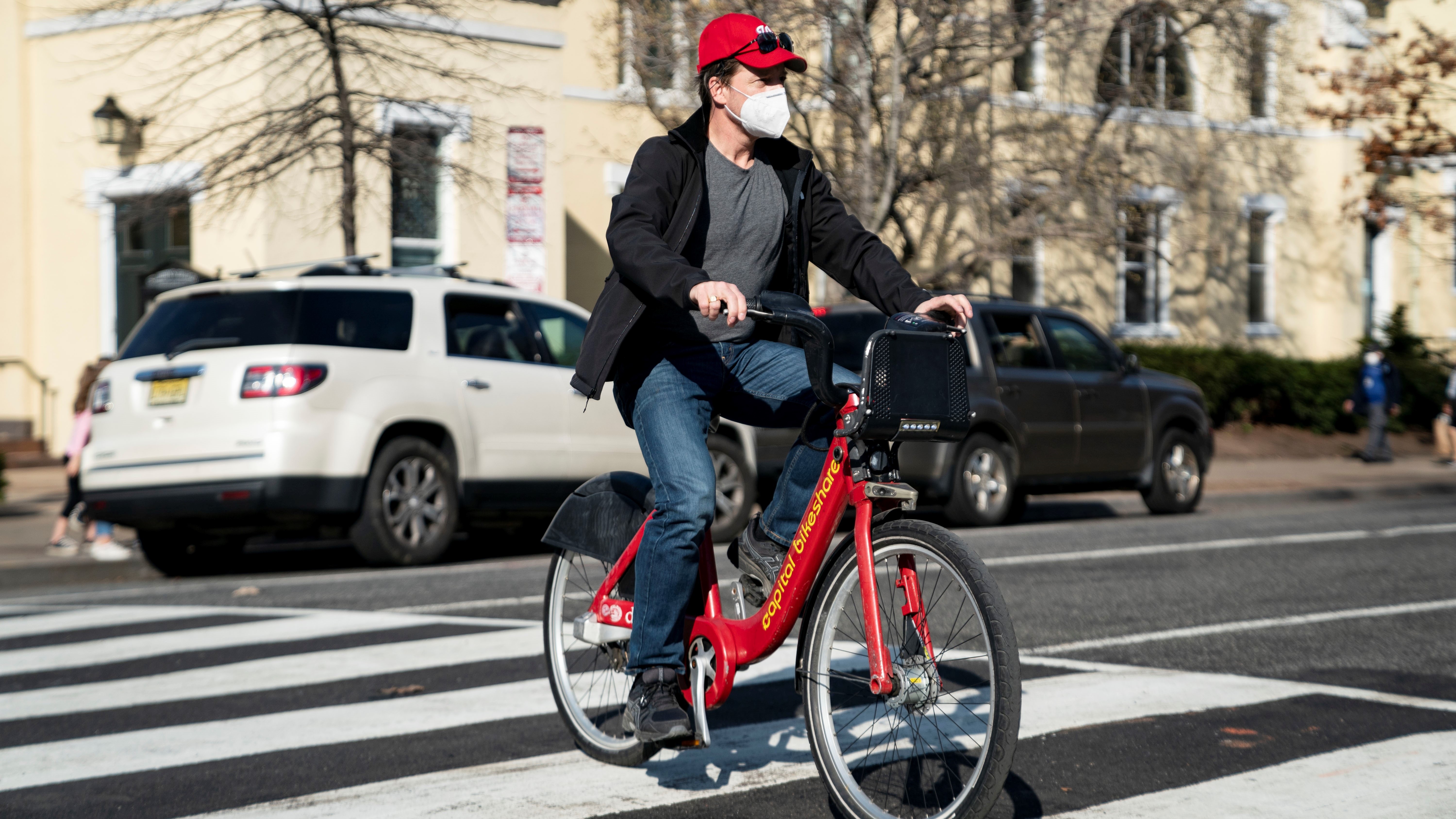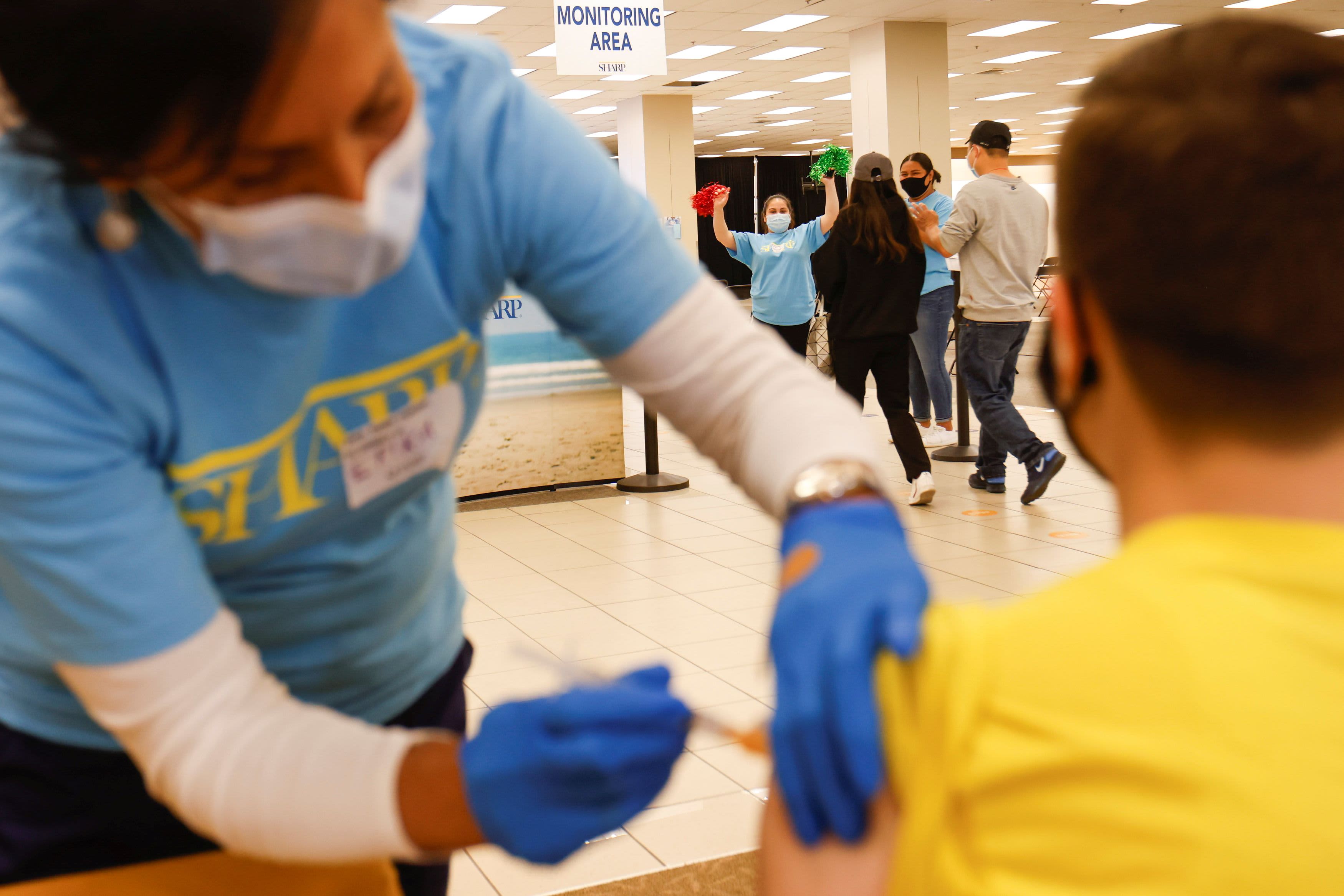What the Data Shows
The seven-day rolling averages of new COVID-19 cases were down as of Sunday in D.C., Maryland and Virginia. D.C.’s average dropped by four cases per day, Maryland’s dropped by 81 cases per day and Virginia’s dropped by 116 cases per day. Hospitalizations also were down in each of the jurisdictions.
D.C. announced the diagnoses of 104 more cases. No additional residents died of the virus. Thirty percent of D.C. residents are partially or fully vaccinated. About 16% are fully vaccinated.
We're making it easier for you to find stories that matter with our new newsletter — The 4Front. Sign up here and get news that is important for you to your inbox.
Maryland announced 906 more cases of the virus. Thirteen more people died. About 42% of the population had received their first vaccine dose. About 27% had received their second dose. And about 3% had received the single-dose vaccine.
Virginia announced 531 more cases of the virus. Fourteen more people died. About 43% of the population had received at least their first vaccine dose. About 28% of the population was fully vaccinated.
Local Coronavirus Headlines
- Maryland and Virginia health officials told providers to resume their use of the Johnson & Johnson COVID-19 vaccine after federal agencies lifted a pause on the vaccine.
- The National Zoo and seven other Smithsonian facilities in the D.C. area are set to reopen in May. Here's how to plan your visit.
- Virginia Gov. Ralph Northam announced Thursday that he would further loosen coronavirus-related restrictions on businesses and social gatherings in mid-May. Here's what to know.
- As the District continues to vaccinate its residents, DC Health is aiming to reach Asian Americans through its Faith in Vaccine program.
- Capital One Arena welcomed more than 2,000 fans for the Wizards game on Wednesday.
- A Maryland biotech company developed a test to help predict how sick you may get from COVID-19. The company is awaiting FDA emergency use approval.
- Virginia has a new mass vaccination site at Tysons Corner Center. Here's how to look for an appointment to get your shot there.
- The George Washington University will require vaccinations for students, faculty and staff this fall.
- Virginia opened vaccinations to residents age 16 and older. The commonwealth will continue to prioritize people who were eligible for vaccines in Phase 1, including health care personnel, residents of long-term care facilities, front-line essential workers, those age 65 and older and others. Here's information on how to get a shot.
- D.C. opened walk-up vaccination sites for residents age 65 and older.
- Business owners in Alexandria teamed up with a pharmacy and the health department to bring a vaccine clinic to their employees.
- The Centers for Disease Control and Prevention is looking into the March death of a Virginia woman as part of its investigation into the Johnson & Johnson COVID-19 vaccine, according to the Virginia Department of Health.
- The Washington Nationals and DC United were allowed to increase capacity at home games from 10% to 25%. Monumental Sports has 10% capacity for Capitals and Wizards home games.
- Some mass vaccination sites in Maryland are offering a limited number of walk-up shots every day, no appointment needed.
- A mass vaccination site is open at the Greenbelt Metro station in Prince George’s County. It offers shots to anyone, not just Maryland residents. Go online here to create an account.
- NBC News is making finding information on when, how and where to obtain your coronavirus vaccination easier with its Plan Your Vaccine website.
Key Charts and Graphs
The vaccinated population in D.C. may be overestimated in this map because some non-residents who work in D.C. are included in the totals.
Vaccination Portals by County
As vaccinations in our region ramp up, here's a look at local portals residents can use to sign up for vaccination appointments or sign up to receive alerts.
- Washington, D.C. signups – vaccinate.dc.gov
- Maryland signups – www.marylandvax.org/ and covidvax.maryland.gov
- Virginia pre-registration – https://vaccinate.virginia.gov/preregister.html
- Montgomery County – www.montgomerycountymd.gov/covid19/vaccine/
- Prince George's County – www.princegeorgescountymd.gov/3730/COVID-19-Vaccination
- Howard County – www.howardcountymd.gov/Departments/Health/MM-Alerts-and-Recalls/COVID-19-Vaccine
- Anne Arundel County – aacounty.org/covidvax
- Fairfax County – www.fairfaxcounty.gov/health/novel-coronavirus/vaccine
- City of Alexandria – www.alexandriava.gov/health/info/default.aspx?id=119270
- Loudoun County – www.loudoun.gov/covid19vaccine
- Prince William County – coronavirus.pwcgov.org/vaccine-information/ & VDH
How to Stay Safe
Anyone can get COVID-19. Here are three simple ways the CDC says you can lower your risk:
- Wear a snug-fitting mask that covers your nose and mouth.
- Avoid being indoors with people who are not members of your household. The more people you are in contact with, the more likely you are to be exposed to COVID-19. If you are indoors with people you don’t live with, stay at least six feet apart and keep your mask on.
- Wash your hands often, especially after you have been in a public place.





